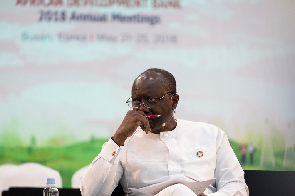Government’s policy to reduce the Communications Service Tax (CST) to 5 percent, provide free water for another three months, and pay the electricity bills of lifeline consumers and other fiscal populist strategies should be scrapped as the economy cannot raise enough revenue to support it, hence, increasing debt levels, the Institute for Fiscal Studies (IFS) has said.
According to the policy think tank’s mid-year budget analysis, the fiscal situation of the country is in a precarious state as employee compensation and debt service expenditure together will hit 122.1 percent of revenue and grants by the end of the year, a sharp increase from the 99.7 percent recorded in 2019. Besides that, the coronavirus pandemic related spending has shot up the debt levels to more than 66 percent of GDP at the end of the second quarter.
It is in this context, the IFS says, the ‘freebies’ introduced by government for everyone, including those who can afford do not make economic sense, and as such, will just add to the already high debt stock.
“While it was commendable on the part of the government to help the vulnerable cope with the pandemic, including ensuring that their access to water in the face of the pandemic was not restricted by affordability issues, the government went ahead to provide free water for all from April to June 2020, including for those who were not vulnerable and were capable of paying for their water consumption. The free water for all has since been extended for another three months.
Again, while paying for the electricity bills of the lifeline and other vulnerable consumers in the face of the pandemic was the right thing to do, the government decided to pay half the electricity bills from April to June for all other consumers, including the well-to-do who could have afforded to pay themselves.
While the pandemic has significantly affected revenue mobilisation because of the projected decline in economic growth, and in the face of the pandemic-related expenditures, which have compounded the expenditure problems explained earlier, the Minister of Finance has announced that the communications service tax will be reduced effective September 2020.
What is actually driving these head-scratching fiscal decisions and choices in the face of COVID 19, whose end is still not yet known? Is the government not aware that the country’s fiscal position was already in a precarious state before the pandemic hit,” the IFS statement said.
The think-tank is recommending to government to refrain from political populism and rather introduce measures that will boost revenue in order to reduce the over-reliance on borrowing to finance expenditure.
“Given the country’s poor and delicate fiscal position, which has dramatically worsened due to COVID-19 and some of the policy choices of the government, we recommend that the government should refrain from engaging in fiscal populism despite the looming 2020 elections, in order not to compound the country’s fiscal problems. Indeed, a critical analysis of the economic history of Ghana reveals that fiscal populism has been one of the main causes of the country’s recurring fiscal and economic distress since independence.”
It further recommends that government immediately seek debt reliefs, including debt forgiveness, from its major creditors so as to minimize the enormous size of the country’s debt service expenditure, which is consuming the biggest chunk of the country’s revenues, and take steps to generate more revenue, particularly from the extractive sector of the economy in the short to medium term.
Business News of Friday, 7 August 2020
Source: thebftonline.com
Increasing debt levels worrying – IFS
Entertainment
















